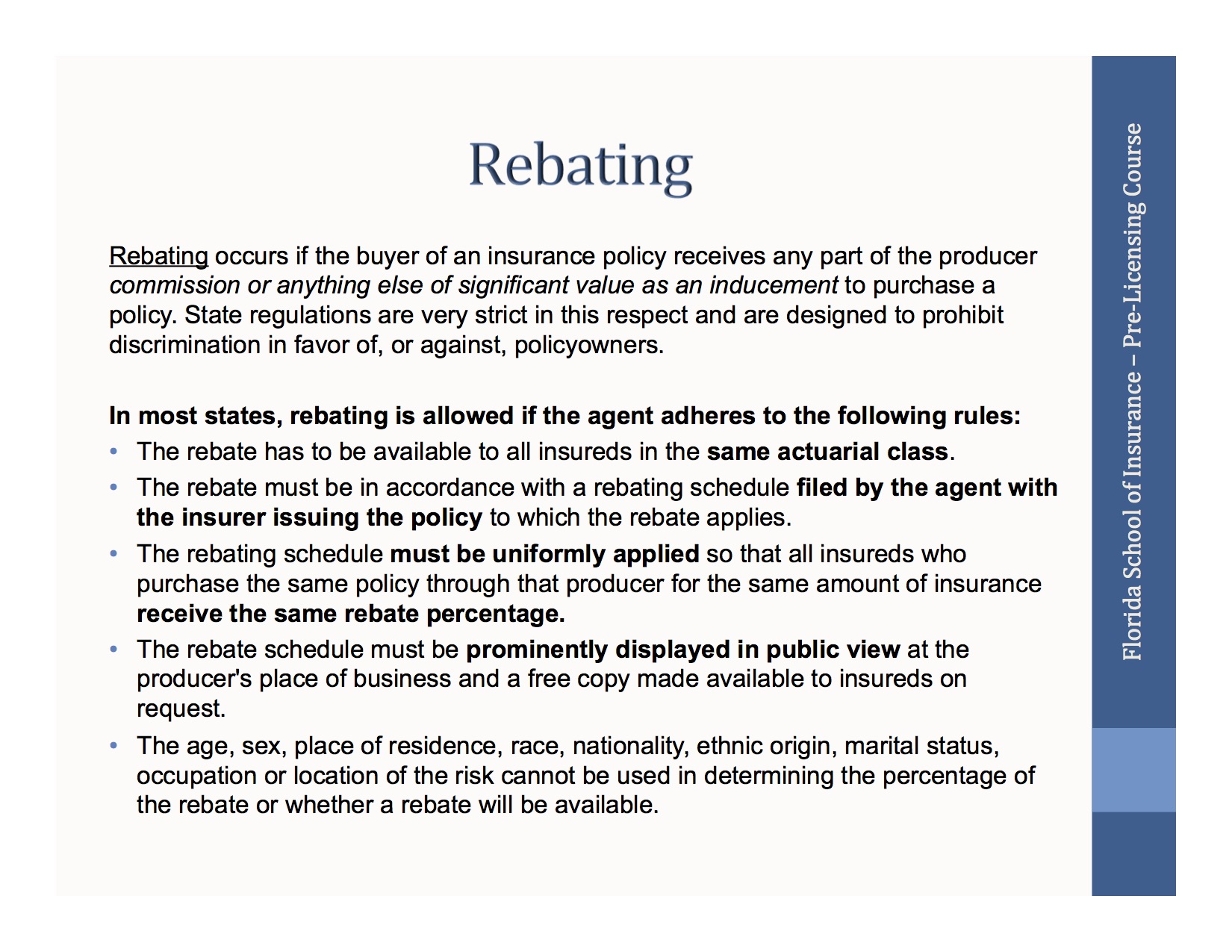Twisting is the act of persuading a policyholder to surrender or lapse out a perfectly good policy in order to replace it with a worse policy from a different company. Twisting is a common term in the insurance industry.

El Aura – Fabian Bielinsky 2005 Thriller Movies Imdb Movies Mind Twisting Movies
California law originally prohibited insurance rebating of any kind, but the state repealed this law in the '80s.

What is twisting in insurance law. Churning is mostly attributed to insurance agents, and most states have laws that will punish those who engage in the practice. (3) (a) if a person violates s. In simple terms, twisting is the act of replacing insurance coverage of one insurer with that of another based on misrepresentations (coverage with carrier a is replaced with coverage from carrier b).
Twisting is the practice of inducing a policyowner with one company to lapse, forfeit or surrender a life insurance policy for the purpose of taking out a policy in another company. 626.9541(1)(l), the offense known as “twisting,” or violates s. Twisting is the act of replacing insurance coverage of one insurer with that of another based on misrepresentations (coverage with carrier a is replaced with coverage from carrier b).
Insurance twisting is when an agent convinces a policyholder to drop their existing policy and take out a new policy that isn’t in their best interests. Getting into a contract with a person or a company on false grounds by making statements that are not in accordance with the facts is known as misrepresentation. Some agents earn commissions on their policy sales and could be motivated to increase their commissions by selling someone a policy that they don’t need.
Twisting hurts you financially, but it's a sweet deal for the agent who pulls it off. What is twisting in commercial insurance rebating is a serious violation of insurance law that not only comes with legal penalties imposed by state regulators but also various sanctions from insurance companies. [noun] the use of misrepresentation or trickery to get someone to lapse a life insurance policy and buy another usually in another company.
It refers to when an agent offers one type of insurance while simultaneously selling another policy from twisting doesn't just include lying about how the accident happened, it also includes exaggerating injuries or damages, and even falsely reporting In the insurance business, twisting refers to an unethical and usually illegal practice in which an insurance agent uses false or misleading information to persuade consumers to drop their existing coverage and take out a new policy with a new company. 775.082 , and an administrative.
When an insurer twists your policy, he convinces you to replace it with one from another company that's actually worse. The insurance practices of twisting and churning are also violations of the unfair trade practices act. Churning is in effect twisting of policies by the existing insurer (coverage with carrier a is replaced with coverage from carrier a).
The california department of insurance since clarified the state's official (sort of) position on rebating by referencing other california laws governing commerce. (3)(a) if a person violates s. When an individual is personally affected by the risk involved, this is known as personal risk.
626.9541(1)(aa), the offense known as “churning,” the person commits a misdemeanor of the first degree, punishable as provided in s. 626.9541 (1) (aa) , the offense known as “churning,” the person commits a misdemeanor of the first degree, punishable as provided in s. 775.082, and an administrative fine not greater than $5,000 shall be imposed for each nonwillful violation or an administrative fine not greater.
Twisting is the act of replacing insurance coverage of one insurer with that of another based on misrepresentations (coverage with carrier a is replaced with coverage from carrier b). Twisting is in violation of the code of ethics of the florida association of insurance and financial advisors and florida law. Churning, also known as twisting, is an attempt by an unscrupulous agent from an insurance company to cancel your existing policy and replace it with a new one.
Churning is in effect twisting of policies by the existing insurer ( coverage with carrier a is replaced with coverage from carrier a). Most states have enacted legislation making twisting. 626.9541 (1) (l) , the offense known as “twisting,” or violates s.
These laws explicitly outlaw rebating done by insurance companies. In the brokerage business, twisting is usually called churning. In an insurance policy, misrepresentation on the behalf of the insured gives the insurance company a right to terminate the policy.
Twisting is the act whereby an insurance agent encourages a policyholder to relinquish (or allow to expire) his or her current policy for the sole purpose of selling a new policy to replace it; Twisting hurts clients financially, but it's a sweet deal for the agent who pulls it off. The sole aim is to generate extra profits for the insurance agent, who makes commissions by selling new policies to existing clients.
An attempt to convince an individual to sell one product and purchase another product, primarily so the salesperson can earn additional commissions. Churning is a similar scam in which the replacement policy is from the same company. Twisting, the more general term, applies to the sale of other products as well, such as insurance policies.
The fines may be imposed in addition to any other applicable penalty. Twisting — the act of inducing or attempting to induce a policy owner to drop an existing life insurance policy and to take another policy that is substantially the same kind by using misrepresentations or incomplete comparisons of the advantages and disadvantages of the two policies. Insurance twisting is fraud, and in most states it's a crime.
Life insurance twisting occurs when an agent misrepresents the facts to replace a life policy the customer owns with a policy from another life insurance company. As a general principle, insurance agents are fiduciaries responsible for acting on behalf of their clients and the insurance carriers they represent and placing their interests above their own in all situations.

Income-tax-form-15g-and-form-15h Income Tax Income Tax Forms

Why Did No One Tell Drivers About This New Rule Car Insurance Tips Compare Insurance Car Insurance

What Is Insurance Twisting – Insurance Pro Az

What Is Insurance Twisting – Insurance Pro Az

Pin On Chiropracticla Chiropratica

What Minimum Auto Insurance Limits Would Be Advisable For Someone Wo Umbrella Policy And Lots Affordable Health Insurance Compare Quotes Life Insurance Policy

What Is Insurance Twisting Sapling Customer Complaints Complaints Coding

What Is Insurance Twisting – Insurance Pro Az

Health Safety Law Poster Health And Safety Health And Safety Poster Health

Why You Should Focus On Workplace Safety Workplace Safety Safety Infographic Workplace

Why You Should Add Live Chat To Your Website Social Media Infographic Infographic Digital Marketing Infographics

Pin On New Visions Healthcare Education

Workers Compensation Archives Workers Compensation Insurance Worker Workplace Accident

The Hexagonal Pestel Analysis Will Allow You To Examine The Different Parts Of The Pestel Acronym To Determ Pestel Analysis Business Plan Presentation Analysis

Bleachers A Novel John Grisham 9780345532039 Amazoncom Books John Grisham John Grisham Books Bleachers

Learn Microsoft Excel Install And Activate The Analysis Toolpack And Solver Learning Microsoft Microsoft Software Microsoft Excel











